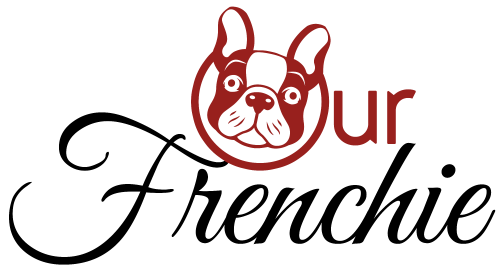About
What’s Holding Back the French Bulldogs Industry?
Page Contents
Health Issues in French Bulldogs
One of the major factors holding back the French Bulldogs industry is the prevalence of health issues in this breed. French Bulldogs are prone to a range of genetic disorders and health problems, which can be a significant deterrent for potential buyers. These health issues not only affect the wellbeing of the dogs themselves but also contribute to the high costs of owning and breeding French Bulldogs.
One of the most common health issues in French Bulldogs is their propensity for respiratory problems. Their short snouts and flat faces, known as brachycephalic characteristics, contribute to a variety of breathing issues. French Bulldogs often suffer from conditions such as brachycephalic airway syndrome, which can lead to breathing difficulties, snoring, and even respiratory distress. This not only affects the quality of life for the dogs but also increases the risk of complications and the need for expensive medical interventions.
Another health concern in French Bulldogs is their vulnerability to skin issues. Their wrinkled and folded skin, combined with their short coats and a predisposition to allergies, make them prone to dermatological problems. French Bulldogs frequently suffer from skin infections, rashes, and irritations, which can be both uncomfortable and painful for the dogs. These skin issues often require ongoing medical treatment and can contribute to the overall cost of owning a French Bulldog.
Additionally, French Bulldogs are also susceptible to a range of genetic disorders. One of the most well-known genetic issues in the breed is their predisposition to spinal and bone abnormalities, such as intervertebral disc disease and hip dysplasia. These conditions can cause severe pain, mobility issues, and even paralysis in French Bulldogs, necessitating expensive surgeries and ongoing care. The prevalence of such genetic disorders can be a significant concern for potential buyers, as the risk of these conditions can be passed down to offspring.
Breeding Challenges
Another factor contributing to the challenges faced by the French Bulldogs industry is the breeding difficulties associated with the breed. French Bulldogs have a relatively narrow breeding window and often require assistance in mating and giving birth. The breed’s large heads and narrow pelvises make natural breeding challenging and increase the likelihood of caesarian sections for delivery. This not only adds to the costs of breeding but also poses health risks for both the mother and the puppies.
Furthermore, the popularity of French Bulldogs has led to an increase in irresponsible breeding practices. Some breeders prioritize quantity over quality, leading to the production of puppies with poor health and genetic issues. Unethical breeders often fail to conduct necessary health screenings and genetic testing, resulting in a higher likelihood of health problems in the puppies. This perpetuates the cycle of health issues and further adds to the challenges faced by the French Bulldogs industry.
Another breeding challenge faced by the French Bulldogs industry is the prevalence of breeders prioritizing certain physical traits over the health and well-being of the breed. The high demand for French Bulldogs with specific characteristics, such as large heads and short muzzles, has led to the breeding of dogs with exaggerated features. This focus on appearance often comes at the expense of the breed’s overall health and functionality. Breeders must prioritize the overall well-being of the breed and work towards breeding French Bulldogs with fewer health issues.
Moreover, the popularity of the breed has resulted in the overbreeding of French Bulldogs without the necessary consideration for the breed’s genetic diversity. A lack of genetic diversity can increase the likelihood of health issues and the breeding of dogs with the same genetic predispositions. This further perpetuates the health problems in the breed, making it more challenging for the French Bulldogs industry to overcome the issues it faces.
Increased Demand and Price Inflation
The soaring popularity of French Bulldogs has led to increased demand, which, in turn, has fueled price inflation in the industry. French Bulldogs are now one of the most sought-after breeds, with celebrities and social media influencers frequently showcasing their adorable pets. This surge in demand has created a lucrative market for French Bulldogs, driving up their prices significantly.
Unfortunately, the high demand and inflated prices have also attracted unscrupulous breeders looking to make a quick profit. These breeders may prioritize quantity over quality and may not provide the necessary care and ethical breeding practices. This not only perpetuates the health issues in the breed but also leads to the sale of puppies with poor temperaments and behavioral issues, which can be a challenge for the buyers.
Moreover, the high prices of French Bulldogs can make the breed inaccessible to many potential buyers. As the prices continue to rise, the cost of owning a French Bulldog, including medical expenses, proper care, and quality breeding, becomes a significant financial burden for individuals and families. This exclusivity undermines the accessibility and affordability of the breed, further hindering the growth of the French Bulldogs industry.
Another consequence of the high demand and inflated prices is the rise of the French Bulldog black market. The profitability of the breed has attracted the attention of illegal breeders and puppy mills, which often prioritize profit over the welfare of the dogs. This has led to the exploitation and mistreatment of French Bulldogs, with the breeding and sale of puppies in inhumane and unethical conditions. The black market not only perpetuates the breeding of dogs with health and behavioral issues but also poses a risk to the overall reputation and credibility of the French Bulldogs industry.
Regulation and the Need for Responsible Ownership
The French Bulldogs industry also faces challenges in terms of regulation and the need for responsible ownership. With the increasing popularity of the breed, there is a greater need for regulations and standards to ensure the health and well-being of French Bulldogs.
One of the key areas of concern is the lack of regulations for breeders. Unlike some other countries, the United States, for example, does not have a central governing body or regulatory authority specifically focused on dog breeding. This lack of regulation makes it easier for unethical breeders to operate and perpetuate the health issues in the French Bulldogs breed. Implementing stricter regulations and licensing requirements for breeders could help ensure the responsible and ethical breeding of French Bulldogs.
In addition to regulation, responsible ownership is crucial for the growth of the French Bulldogs industry. Potential owners need to be educated about the breed’s specific needs, health issues, and the importance of responsible breeding practices. Responsible owners should prioritize the health and well-being of the breed, ensuring the necessary health screenings, genetic testing, and proper care for their French Bulldogs. This, in turn, will contribute to the breeding of healthier and genetically diverse French Bulldogs, addressing the challenges faced by the industry.
In conclusion, the French Bulldogs industry is faced with several challenges, including the health issues prevalent in the breed, breeding difficulties, the increased demand and price inflation, and the need for regulation and responsible ownership. Overcoming these challenges will require the collective effort of breeders, owners, and regulatory bodies to prioritize the well-being of the breed and the responsible breeding and ownership of French Bulldogs. With the necessary steps and the commitment to the breed’s health and the industry’s growth, the French Bulldogs industry can overcome the obstacles and ensure the future of the breed.

